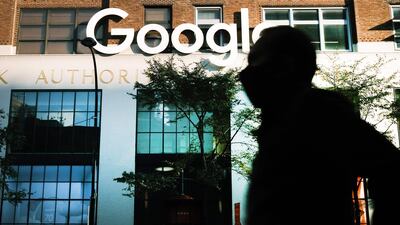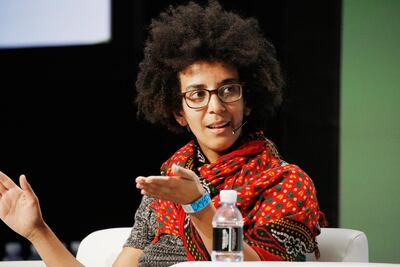Google locked out artificial intelligence researcher Margaret Mitchell from its corporate systems, making her the second outspoken critic at the company to be sidelined. Ms Mitchell was a vocal supporter of her colleague Timnit Gebru, who departed under acrimonious circumstances last month.
Ms Mitchell leads Alphabet’s ethical AI unit, which is responsible for developing the company’s technology in a socially responsible manner. Ms Gebru tweeted on Tuesday that Ms Mitchell’s "corp access is now locked" and that the researcher had been told she would remain locked out "for at least a few days."
Ms Mitchell didn’t respond to a request for comment. A Google spokesman said the company is actively investigating the matter and provided the following statement:
"Our security systems automatically lock an employee’s corporate account when they detect that the account is at risk of compromise due to credential problems or when an automated rule involving the handling of sensitive data has been triggered. In this instance, yesterday our systems detected that an account had exfiltrated thousands of files and shared them with multiple external accounts. We explained this to the employee earlier today."
The Alphabet Workers Union, which counts Ms Mitchell as a member, said it was concerned by the suspension of her systems access, calling the move an "attack on the people who are trying to make Google’s technology more ethical."
"Regardless of the outcome of the company’s investigation, the ongoing targeting of leaders in this organisation calls into question Google’s commitment to ethics – in AI and in their business practices," the union said Wednesday in a statement. "Many members of the Ethical AI team are AWU members and the membership of our union recognises the crucial work that they do and stands in solidarity with them."
Google’s statement on the matter was an attempt to tarnish Ms Mitchell’s reputation despite a typical practice of refusing to comment on personnel matters, the union added.
Ms Gebru, best known for showing how facial recognition algorithms are better at identifying White people than Black people, left Google in a storm of controversy in December. She has said she was fired after the company demanded she retract a research paper she co-authored that questioned an AI technology at the heart of Google’s search engine. The company has said she resigned.
Close to 2,700 Googlers and more than 4,300 academics and civil society supporters signed a petition in favor of Ms Gebru. Google chief executive Sundar Pichai emailed an apology to employees and said he is investigating the incident.
Ms Mitchell has been a vocal supporter of Ms Gebru on social media and a critic of the shortcomings of Google and other tech companies in how they address issues of race, gender and systemic bias.
The company has increasingly clashed with employees in recent years over AI projects, especially with the military, and workplace diversity.
Earlier this month, several employees unveiled the Alphabet Workers Union to pressure the company on issues including compensation and ethical concerns such as the kinds of work Google engages in.
On December 21, April Curley, who spent six years as a Google diversity recruiter, said she was fired for speaking out internally about her concerns that the company wasn’t sufficiently interested in diversifying its workforce. In a Twitter thread, she said Google does not "want Black talent."
Subsequently, HBCU20x20, an organisation that pairs students from Historically Black Colleges and Universities with companies, canceled an agreement to work with Google, which was signed last year.
Mr Pichai will meet with several of these colleges on January 29 to discuss representation in the technology industry, according to an official from Florida A&M University.
In addition to the president of Florida A&M, representatives from Howard University, Morgan State University, Prairie View A&M University, North Carolina A&T University and the Thurgood Marshall College Fund are expected to take part in the virtual meeting, the Florida A&M official said.
"We are dedicated to hiring and retaining Black+ and other underrepresented talent at Google, and we’re committed to strengthening our partnerships with HBCUs," a Google spokeswoman wrote in an emailed statement. "This work is critical – in 2019 we welcomed graduates from 19 HBCUs and over the past decade, we’ve expanded our recruiting efforts to more than 800 schools."


